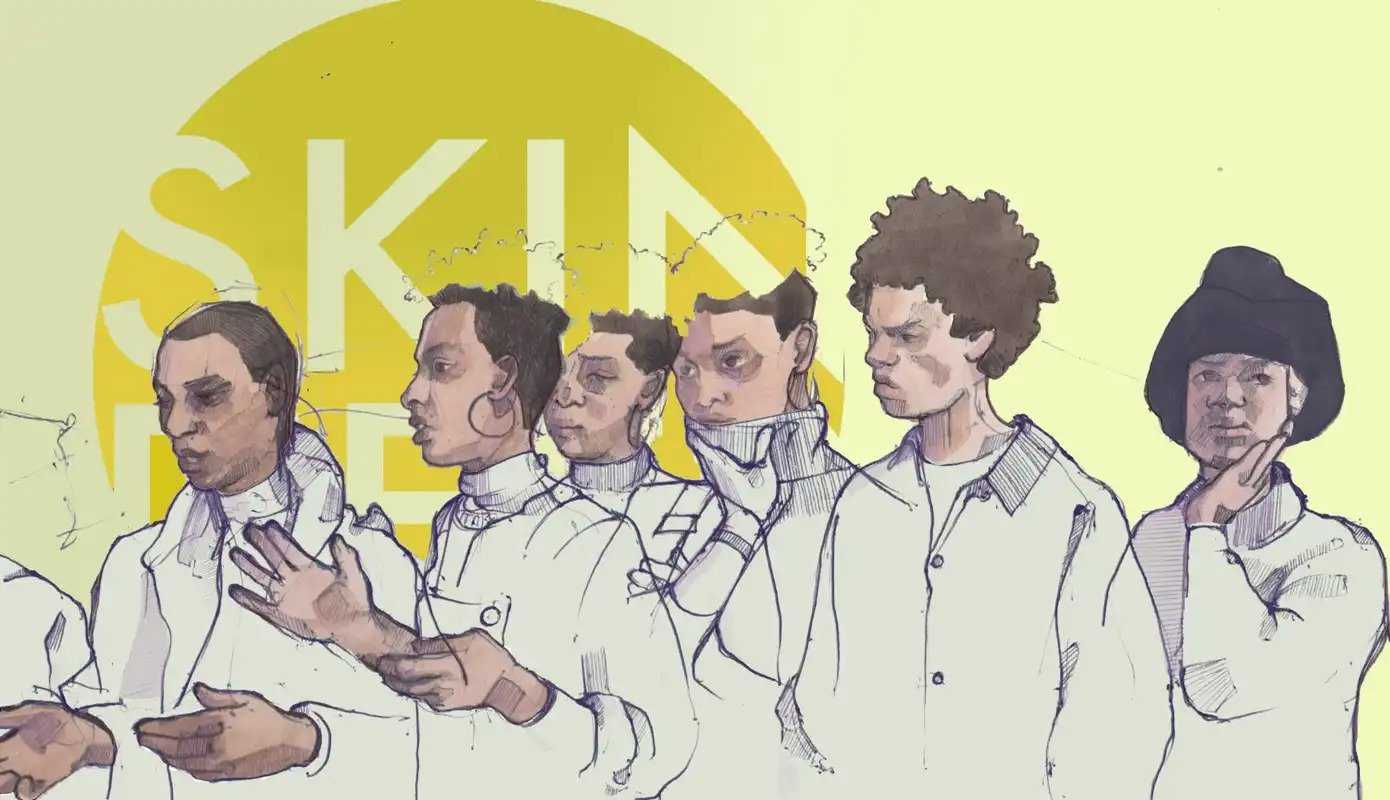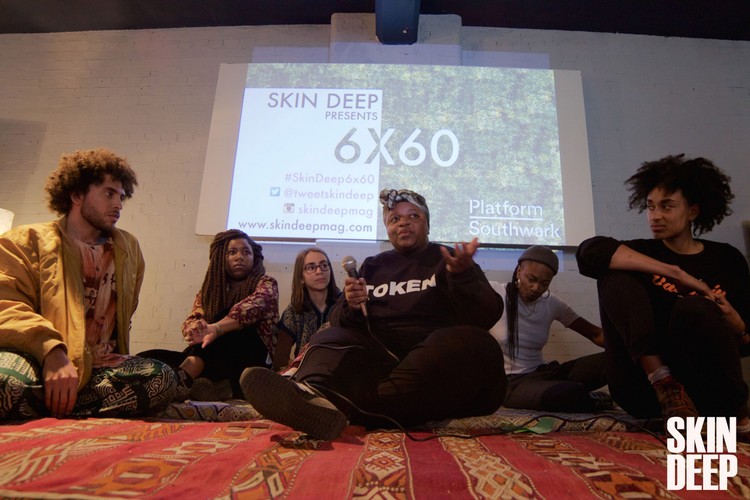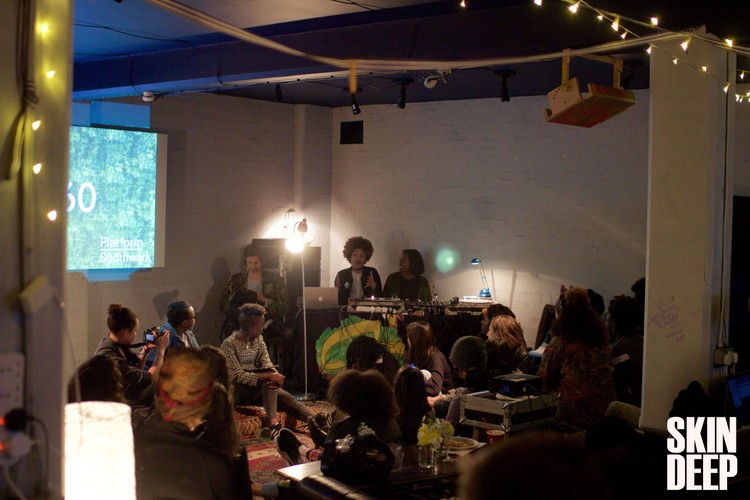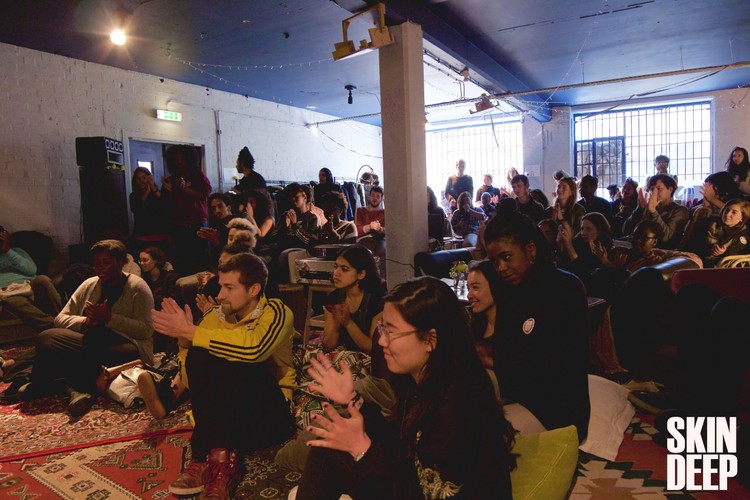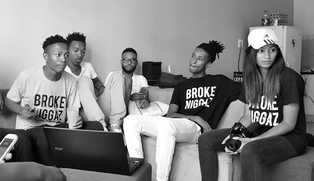On the 17th of April, a sunny Sunday, Skin Deep welcomed six cutting-edge counterculture collectives of colour to Platform in Southwark, London. They had 60 minutes each to use the space however they chose, showcasing what they do and sparking much-needed conversations about race, culture and identity, from past to future, outside the classroom and offline. At the beginning of the second session of the day, a member of Decolonising Our Minds Society from SOAS University asked the audience: “What learning/formative experiences have you had outside of the classroom?” People shared stories about learning from their mothers and fathers to cook Zimbabwean dishes, facing the challenge of finding ingredients in a country where they either didn’t exist or couldn’t survive the wet and damp climate. One person shared a story of a bar fight, another about a house party, making the audience think broadly and deeply outside of conventional methods of learning. At the front of the room we had created a low stage, about 6 inches off the ground, out of wooden pallets, which we covered with red, brown, orange and green carpets to make sure no one slipped through the cracks. Most of the collectives asked just before they started their session: “We know it will be slightly harder to see us, but can we sit on the stage rather than stand?” Sitting down put those facilitating the discussion at a lower level than most of the audience, so before the conversations even got started, the audience were forced to acknowledge the way in which – both within and outside of institutional spaces – we separate those who possess knowledge and those who seek it. These hierarchies are reflected in who speaks and who listens, who is at the front, who is standing and who is sitting. From their place on the floor, by allowing the whole room to navigate these questions with personal storytelling and exchange, the collectives didn’t just talk about dismantling hierarchies of knowledge – they were putting their methods into practice. Next the audience was asked: “What are our strategies for disrupting these hierarchies of knowledge?” One person told a story about a podcast they had listened to on RadioLab: “Two queer black students go into a debate and they are supposed to talk about energy, but they force a debate on race every single time, regardless of the topic. They say “the energy that it takes me to get up in the morning is more important than the energy of fossil fuels, so we are going to talk about that. And that’s the strategy I’ve been using in my classroom and in my writing. Using the form you are given to say “Look at this.” You learn far more from creating spaces like this and from forcing these kinds of conversations.” One of the reasons Skin Deep chose to create an event like the 6×60 is that we wanted people to be in a space where they felt that they could ask questions like: why is there a disjuncture between knowledge cultivated inside and outside the classroom? And: how can we share our non-traditional forms of knowledge production? In bringing collectives that work on race and culture together, the hope is that they will link up, showcase work, share methods, get feedback, pool resources and create. Or at the very least, as Decolonising Our Minds challenged us to do, consider what it means for us, as counterculture collectives, to work with/in institutions and whether that makes us complicit in upholding the system. Something worth considering is that the majority of the work that we, and collectives like us do, is free. We have little to no funding, yet we are continually working hard to innovate, to find new ways to produce dope work and get it out to a worldwide audience – all whilst keeping it fresh, accessible, not compromising on our values, and prioritising the lives, narratives and aesthetics of people of colour. And that is damn hard work. So meeting and working with other collectives provides a motivational boost for us to continue to do the work we’re doing. Of course, working this way is made that much easier if we are able to share accessible and free spaces, such as Platform Southwark, where we can host events like 6×60. These concerns are obviously not unique to our situation; they were experienced by the generations that created, agitated and collaborated before us. In their session on Generations in Dub: Intergenerational thinking through the sound of Jamaican music, the Stuart Hall Foundation played tracks on Al Fingers’ 80s sound system as a way to expose younger generations to music from generations past.
Music itself helps connect people in ways that text and image often do not. But the production techniques of the genre of dub (reverb, stripped down drum and bass) offer a rich vocabulary (resonances, rhythms, vibrations, echoes) that is especially sensitive to the kinds of relationships that are vital between generations. The dancehall sound system setting on which dub is designed to be played – with its dub plate specials, versioning and MC chat – also offers further tools for thinking generations through sound.”
In the spirit of the late modern father of Cultural Studies, Stuart Hall, they emphasised the importance of dialogue, but also of calling on the older generation for support and resources, which would give us the freedom to put our energies into creating work and establishing spaces using our own methods and styles. Being part of the ‘online generation,’ it’s easy to slip into habits of clicktivism, re-posting great articles, giving shoutouts on timelines, and continuously checking the number of followers you have on your various social media platforms for tiny waves of gratification. We created Skin Deep with the intention of having the online content support the offline work. Online is quick and accessible, but we’re all about bringing the things we do into the real world. We hope the 6×60 was the first of many collaborations with groups like Voices that Shake!, gal-dem, sorryyoufeeluncomfortable, Decolonising our Minds and the Stuart Hall Foundation, who are opening spaces and producing work that should really, if they can, be experienced irl. If you have ideas – online or offline – and want to collaborate, please get in touch. We will pool our resources and help as best as we can to take your idea from conception to manifestation, and introduce you to our wonderful family of PoC writers, editors, artists and activists along the way. If we’re talking about making change and unbalancing structures, we gotta start from roots. To do that, we need to link up and support each other. As the summer rolls in, we are working hard (and would love your help) on our upcoming print edition: IMAGINING 2043. The future is the dream that sustains those who find no accommodation in the present. It is a realm in which we can imagine a world free from the things that prohibit or oppress us. In the future there are no borders, the climate is no longer an issue, gender is fluid, cyborg is a reality, egalitarianism is the norm and racism is a thing of the past. Delaying tactics often known as tomorrow, next week, the following month or maybe 2017 are too tainted by the realities of a world known as today to allow us to imagine these possibilities. So we offer 2043, a date far enough to have evaded the grasp of today and near enough that we may witness the realization of all our hopes for the future. Big up all the extended friends and family of Skin Deep for their help in putting on 6×60. And big love to the collectives who came and shared their work and ideas, created a lit and live environment, and gave us all hope for the future of PoC-led collectives doing their thing.


